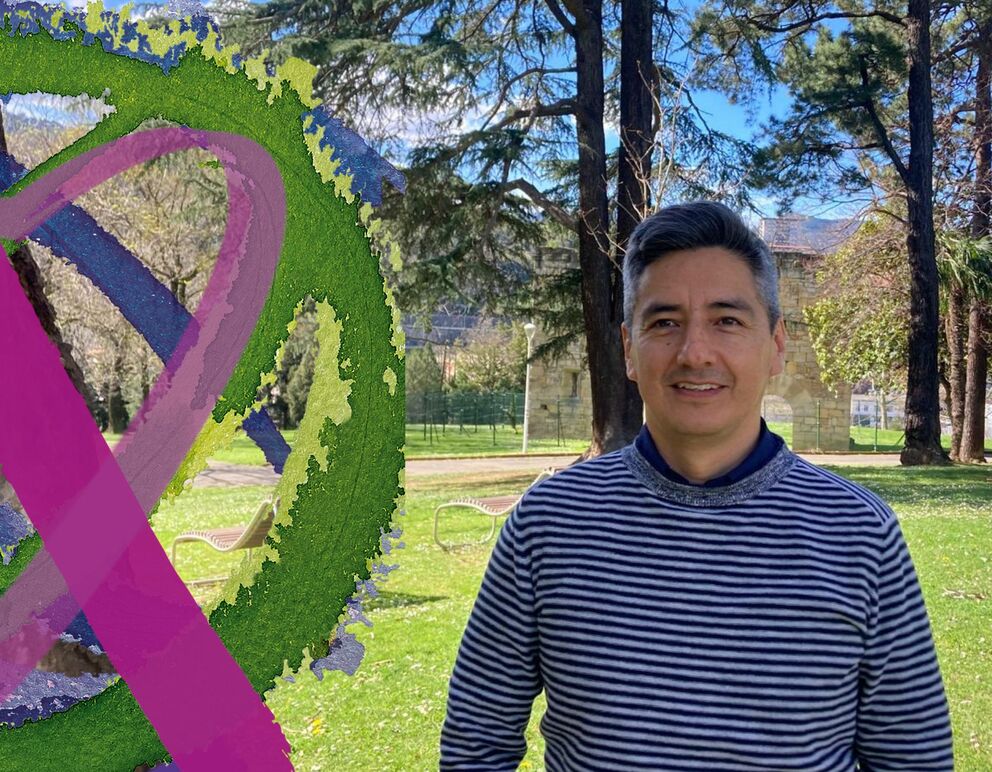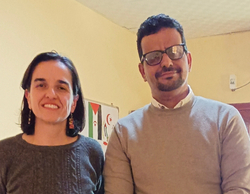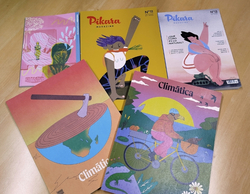
Andrés Herrera, professor of the online Master’s in Cooperation and Emancipatory Education, talks to us about the potential of this postgraduate course
Andrés, who holds a PhD in Development Studies from the University of the Basque Country/Euskal Herriko Unibertsitatea and works at the Hegoa Institute, teaches the subject “The debate on development and cooperation”. In this interview, we ask him what he values most about this online master’s.
Hegoa: During this pre-registration and enrolment period, why would you encourage someone to take this master’s?
Andrés: Because it is based on two fundamental pillars (International Cooperation and Emancipatory Education), and I believe these two tools (you could also call them methodologies, methods or approaches) will enable those who take the master’s to understand how the world works; this capitalist, heteropatriarchal and Eurocentric system that goes against nature. Students will receive training from these perspectives, with a critical outlook that helps them understand the world both globally and on a more territorial, local level. And, above all, they will gain tools to try to change it.
Hegoa: What potential does the content of this master’s offer?
Andrés: There is a wide variety of content. Topics covered include neoliberal globalisation, the debate on development and cooperation, the gender perspective, transition discourses, international cooperation policy agendas, social change issues and various teaching methods and spaces for action in emancipatory education. All of these are essential tools for trying to transform the world. The content ranges from the broad to the more specific. For example, I teach the subject “The debate on development and cooperation” alongside Professor Iker Etxano. This covers topics such as development and its origins, the human development approach from a critical perspective, the issue of sustainability and development, and the agendas that have emerged around cooperation (such as the MDGs and the current 2030 Agenda).
Hegoa: What is the main strength of the master’s?
Andrés: It has the advantage of being virtual, so that each student can study at their own pace. Although there is, of course, a set schedule to cover the content and assessments, each person can organise their time based on their needs.
From the next edition onwards, you can also take the full master’s or choose to follow just one of its modules: International Cooperation or Emancipatory Education. This leads to a Specialisation qualification. If you enrol in just one module but later decide to obtain the full master’s qualification, you can take the other module later.
Hegoa: What are the strengths of the teaching staff?
Andrés: The master’s is divided into different subjects, each of which has teaching staff responsible for guiding students on an ongoing basis. There are forums and assignments, and there is also a Final Master’s Project through which each student can explore a topic of interest in greater depth with support.
Hegoa: I would add that, as this is a university-specific degree, we have teaching staff from the university as well as from various social organisations. Lastly, we would like to ask you what the main career opportunities are for this master’s.
Andrés: It is taken by both recent graduates and working professionals from a variety of fields. Students can apply what they learn through the master’s directly, especially in NGOs and public institutions working in the fields of cooperation and education, but they can also find ways to apply this content, these perspectives and what they have learned in their own profession.
Hegoa: Thank you, Andrés, for sharing your perspective on this postgraduate course. And for your commitment to it.
Andrés: Thank you as well. I encourage anyone who is interested to enrol!
If you want to learn more about the master's degree, visit its web page on the UPV/EHU website. To pre-enroll please enter the online platform.
Related news




